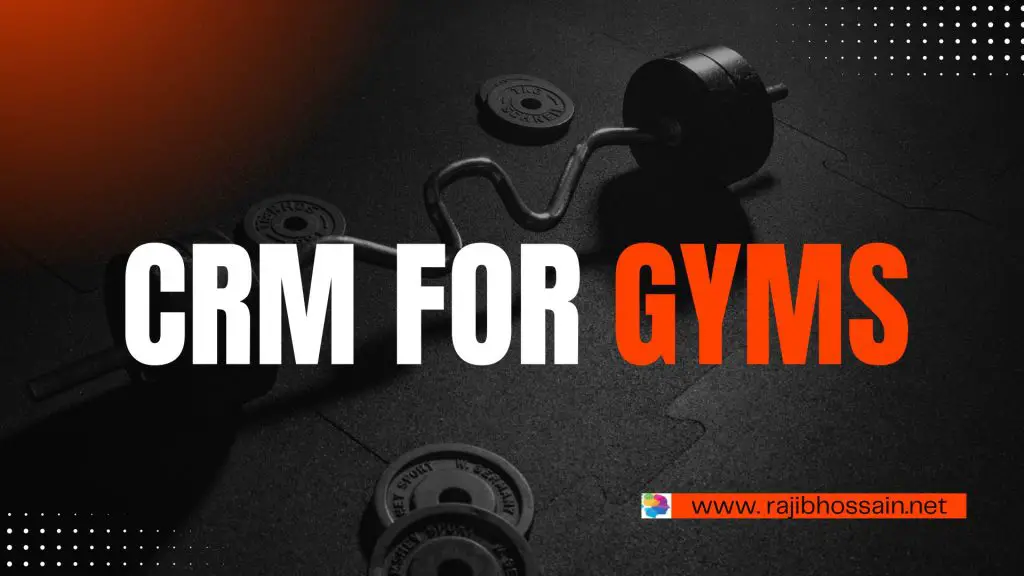
Maintaining strong member relationships and streamlining operations are crucial in the competitive fitness industry. Customer Relationship Management (CRM) systems have become essential tools for gyms to enhance member engagement, improve communication, and boost overall efficiency. This article explores the benefits of CRM for gyms, and critical features to consider, and answers common questions about implementing CRM in the fitness industry.
Why Gyms Need CRM Systems
Gyms face the challenge of managing extensive member information, marketing efforts, and daily operations. CRM systems offer several advantages:
- Enhanced Member Management: Centralized member information, including contact details, membership statuses, and communication records.
- Improved Communication: Automated tools for sending class schedules, promotional offers, and membership reminders.
- Operational Efficiency: Streamlining administrative tasks such as scheduling, billing, and member check-ins.
- Data Analytics: Insights into member behaviors, class attendance, and business performance to inform strategic decisions.
- Marketing Automation: Tools for promoting classes, managing memberships, and tracking marketing campaigns.
- Personalized Services: Tailoring fitness programs and services to meet individual member needs, enhancing member satisfaction and loyalty.
Essential Features of CRM for Gyms
When selecting a CRM system for a gym, consider the following features:
- Member Management: Centralized database for member records, membership statuses, and interaction histories.
- Communication Tools: Automated communication tools for sending updates, reminders, and personalized messages.
- Scheduling and Class Management: Tools for managing class schedules, member bookings, and instructor assignments.
- Billing and Payments: Integrated billing systems to manage member payments, invoicing, and financial reporting.
- Analytics and Reporting: Detailed reports on member behaviors, class attendance, and business performance.
- Marketing Automation: Tools for promoting classes, managing memberships, and tracking marketing campaigns.
- Integration: Compatibility with other gym management software such as booking systems and payment processors.
- Customization: Ability to tailor the CRM to meet the specific needs of the gym.
- Mobile Access: Access to CRM data on the go through mobile apps.
- Security: Robust security features to protect sensitive member information.
Top CRM Systems for Gyms
Here are some of the best CRM systems tailored for gyms:
- Mindbody
- Features: Comprehensive member management, scheduling, billing, and marketing automation.
- Pros: Designed specifically for the fitness industry, robust integration with other gym management software.
- Cons: Higher cost, may require significant customization for small gyms.
- Pricing: Custom pricing based on business size and requirements.
- GymMaster
- Features: Member management, scheduling, billing, and communication tools.
- Pros: User-friendly, designed specifically for gyms, customizable.
- Cons: Limited features compared to broader CRM platforms.
- Pricing: Starts at $89 per month.
- Zen Planner
- Features: Member management, scheduling, billing, and marketing automation.
- Pros: Affordable, designed specifically for the fitness industry, easy to use.
- Cons: Limited integration options compared to broader CRM platforms.
- Pricing: Starts at $117 per month.
- FitSW
- Features: Member management, scheduling, billing, and communication tools.
- Pros: Designed specifically for personal trainers and small gyms, affordable.
- Cons: Limited features compared to broader CRM platforms.
- Pricing: Starts at $19 per month.
FAQs
Q1: Is a CRM system necessary for small gyms?
- A: While not essential, a CRM system can significantly improve member management, communication, and operational efficiency, even for small gyms.
Q2: How do CRMs ensure member data security?
- A: CRMs for gyms are designed to comply with data protection regulations, featuring robust encryption, access controls, and regular security audits.
Q3: Can a CRM system integrate with existing gym management software?
- A: Many CRMs offer integration capabilities with popular gym management software such as booking systems and payment processors, ensuring seamless data transfer and workflow.
Q4: What are the initial steps to implement a CRM in a gym?
- A: Identify your gym’s specific needs, choose a CRM that meets those needs, train staff on its use, and gradually integrate it into your daily operations.
Q5: How can CRM improve member engagement in gyms?
- A: CRM systems help track member preferences, send personalized communication, and promote relevant classes and services, enhancing overall member engagement and satisfaction.
Conclusion
Implementing a CRM system in a gym can enhance member management, improve communication, and streamline operations, allowing gym owners and staff to focus more on delivering exceptional fitness experiences. By selecting a CRM with the right features and ensuring it meets the specific needs of the gym, fitness businesses can boost their operational efficiency, member satisfaction, and competitive edge in the market.
